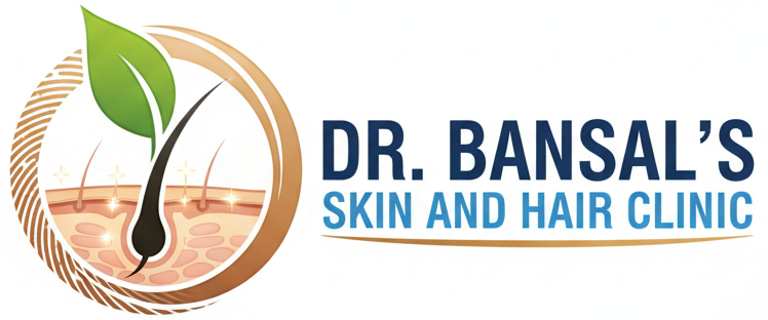Scalp Ringworm(Tinea Capitis) Treatment In Indore
Dr. Bansal's Hair Clinic, Indore
About Scalp Ringworm (Tinea Capitis)
Tinea capitis is a fungal infection of the scalp caused by dermatophytes-fungi obtaining their nutrients primarily from keratin.
It is contagious, most common in children, but can occur in adults.
Symptoms:
Round, scaly patches of hair loss
Itchy scalp
Black dots where hair has broken off
Swollen, red patches or pus-filled bumps in severe cases
Crusting or oozing in severe infection
⚠️ Causes & Risk Factors
Direct contact with infected person or animal (cats, dogs, farm animals)
Sharing combs, hats, towels, or pillows
Warm, humid environments in which fungi can grow
Poor personal hygiene or excessive perspiration
Immune suppression or chronic illness
Treatment
1. Antifungal Oral Medication-an absolute necessity for treatment
Griseofulvin – classic first-line, usually 6–8 weeks
Terbinafine – effective for children and adults (4–6 weeks)
Itraconazole or Fluconazole – alternative options
Oral medication is necessary because topical creams alone cannot penetrate hair follicles.
2. Topical Antifungal Shampoo (supportive)
Ketoconazole 2% shampoo
Selenium sulfide 2.5% shampoo
Usage:
Wash hair 2–3 times a week
Helps reduce fungal spores and prevent their spread.
Combine with oral therapy.
3. Adjunct Measures
Keep the scalp clean and dry.
Trim long hair to allow medication contact
Avoid scratching to avoid secondary bacterial infection
Prevention & Control of Contagion
Avoid sharing combs, hats, and towels.
Wash your bedding and clothes in hot water.
Treat pets if they are carriers.
Isolate infected children from school or playgroups for 24–48 hours on treatment.
Maintain scalp hygiene, including frequent shampooing and thorough drying of hair.
What Not to Do
❌ Don't use only steroids or topical creams; the fungus will persist.
❌ Don't share hairbrushes or towels.
❌ Don't neglect the infection; it can cause permanent hair loss if left untreated.
❌ Avoid scratching — can cause bacterial superinfection.
❌ Do not rely on home remedies alone because fungal infections require antifungal medication.
Complications
Permanent hair loss occurs when follicles are severely damaged.
Kerion formation: painful pus swelling resulting from the body's immune response
Secondary bacterial infection
Spread to family or classmates,
and when to see a Doctor
Patches of hair loss are rapidly spreading.
Pus, swelling, or severe redness develops - kerion. Home remedies or topical antifungal fail after 2–3 weeks. Infection recurs after treatment
Care
Dr. Shreyas Bansal has over 46 years of experience in promoting hair health and wellness. At Dr. Bansal’s Homeopathy Clinic, located at 2 Manish Bagh, Sapna Sangeeta Road, Indore, we provide personalised care to strengthen your hair, improve scalp health, and restore confidence naturally.
Health Hairs AT
Beauty
+91 9926120111
© 2025. All rights reserved.
